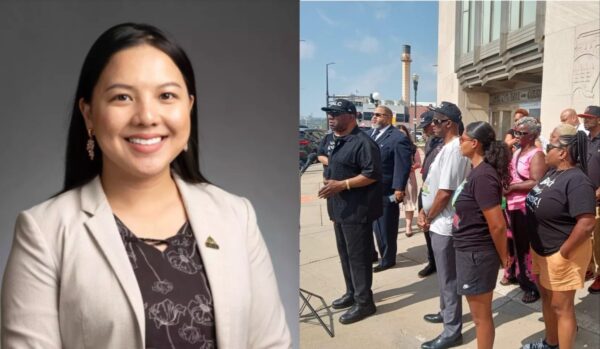A St. Paul city official has withdrawn her name for consideration as the person to staff the city’s new reparations commission.
She removed her name after Black leaders in the Minnesota capital pushed back, asserting that the role should be filled by a Black person.

Jennifer Lor, who currently serves as a policy aide for Council member Nelsie Yang, is Asian-American.
A group of leaders from the Black community assembled in front of Saint Paul’s City Hall to express their disapproval of the City Council’s choice to appoint a policy aide who is not of African-American descent to serve on the reparations commission.
The protesters were clear that this was not a personal attack against Lor but an important marker for the Black community.
“It’s not about the person. It’s just that we need somebody who has the lived experience, knowledge of reparations, knowledge of the racial wealth gap and how it impacts the descendants of slavery who reside in St. Paul,” said Trahern Crews, one of the leaders of St. Paul’s reparations movement.
President of the African American Leadership Council Tyrone Terrill said he considered the decision to hire Lor as “total disrespect for the Black community.”
“We’re not going to stand for it,” he declared at the protest.
Chauntyll Allen, leader of Black Lives Matter Twin Cities and a member of the St. Paul school board, joined the cry to have the City Council reevaluate the applicant pool. She emphasized that the council should consider capable Black candidates, proposing a reposting of the job listing and active recruitment of African-American applicants.
The job listing, posted in June, indicated that the person hired would divide their time between handling reparations policy and serving as the council’s district liaison. This was seen as the initial slight to the community, which many believed represented the tone deafness of the council.
“That in and of itself is a problem — the fact that we can’t be allotted a full-time position to work on something that’s so much work, so deeply rooted and so historical,” Allen said. “We’re talking 400 years of oppression that needs to be addressed.”
Following a yearlong study, the council decided in January it would establish a lasting advisory board. This board would be tasked with advising city officials on reparations policies and budget matters concerning descendants of chattel slavery in the city of St. Paul.
The initial 11 members of the commission were selected in late June. Lor, had she stayed in the running, would have been considered to staff this collective.


